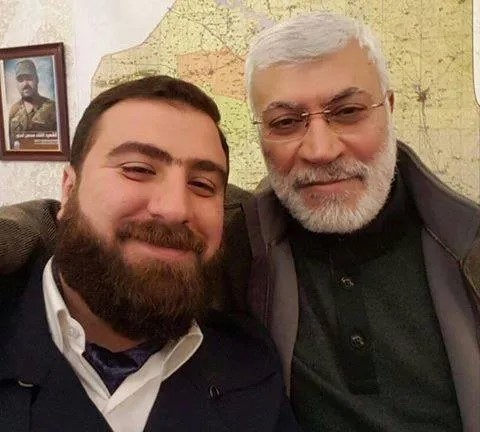Popular Mobilization Forces Law stalled amid US pressure and reassessment by Baghdad
BAGHDAD — Iraq is facing a heated debate over the fate of the Popular Mobilization Forces (PMF) law, as American pressures intersect with domestic political considerations. In a move reflecting these tensions, the draft law has been withdrawn from parliament and its vote postponed indefinitely.
Member of Iraq’s Coordination Framework (CF), which represents the country’s main Shia political forces, Uday al-Khadran told Shafaq News that a recent meeting of the four primary government leaders — the president, the prime minister, the parliament speaker, and the judiciary chief — decided to postpone the legislation “to preserve internal stability and prevent Iraq from being drawn into any regional escalation.”
Al- Khadran added that the postponement does not indicate the dissolution or dismantling of the PMF, but “to preserve internal stability and prevent Iraq from being drawn into any regional escalation.”
Despite official explanations, doubts persist over Iraq’s decision to postpone the PMF law. Iraqi and Kurdish media, citing a legal advisor to the Speaker of Parliament, reported that the move came in response to mounting US pressure. According to these sources, Prime Minister Mohammed Shia al-Sudani informed his allies that Washington had issued a three-week ultimatum to develop a concrete plan to disarm PMF factions, warning that passing the law without compliance could trigger severe sanctions capable of crippling Iraq’s economy.
Cross-verified political sources confirmed that the US threats were not merely rhetorical. A foreign ministry official said that US Secretary of State Marco Rubio delivered a direct message to Baghdad, stressing that integrating Iran-linked factions into Iraq’s military without genuine reforms would undermine state authority. The same warning was conveyed by US Chargé d’Affaires in Baghdad, Steven Fagin, during a meeting with Iraqi security officials, framing the PMF issue as a delicate balance between maintaining internal stability and avoiding economic confrontation with Washington.
Meanwhile, Tehran continues to strengthen its influence in Iraq through unofficial channels. Arij Masjedi, deputy commander of the Quds Force, toured Baghdad and several other cities, meeting with PMF leaders and instructing them to develop security and intelligence plans, particularly in response to reports of infiltration by individuals suspected of spying for Israel.
This tug-of-war between US pressure and Iranian oversight puts the Iraqi government in a difficult position, forcing it to navigate a complex dilemma of how to reconcile external demands with deep internal divisions.
The debate over the PMF law dates back to 2016, when the Iraqi Parliament passed legislation establishing the first legal framework for the PMF, following the “Sufficient Defense” fatwa issued by Grand Ayatollah Ali al-Sistani in the summer of 2014. At the time, the PMF was primarily a tool to counter the Islamic State (ISIS) terrorist organization and respond to the fall of Mosul. Over the years, however, its political and military role expanded, sparking divisions among Shia factions about its future. Some advocate for gradual integration into the Iraqi army, while influential groups insist on preserving its independence, viewing it as a “resistance force” that transcends traditional military structures.
The current scenario is further complicated by shifting regional dynamics. The United States has begun a partial withdrawal from its bases in Iraq, in accordance with an agreement to end the international coalition’s military presence by September 2025. At the same time, tensions between Tehran and Washington are rising, turning Iraq into a testing ground for competing spheres of influence.
The withdrawal of the PMF law was seen by many as a necessary move to avoid direct confrontation. Yet it also underscores the fragility of political consensus in Baghdad, where issues of sovereignty are often shaped by regional and international pressures.
Analysts suggest the law is unlikely to disappear entirely. It is expected to resurface in the next parliamentary session, as political forces attempt to strike a compromise that appeases Washington without provoking Tehran — a delicate balance that remains difficult to achieve.

The presence of the PMF in areas inhabited by Chaldean–Syriac–Assyrian communities in the Nineveh Plains — particularly through the Babylon Brigades (also called Brigade 50) led by Rayan al-Kildani — has contributed to the displacement of these minorities. Reports indicate widespread seizure of their properties and lands, alongside plundering, which has undermined efforts to encourage their return to their homes.
The PMF, with their significant military and organizational capacity, continue to embody Iraq’s enduring divisions. On one side are those who see the PMF as a safeguard against security threats; on the other, those who view them as an obstacle to state-building. The debate is further complicated by external pressures aiming to regulate or disarm the PMF, while regional actors push to expand their influence. For now, the PMF issue remains unresolved, resembling a deferred fireball awaiting a new government and the next political phase.




















